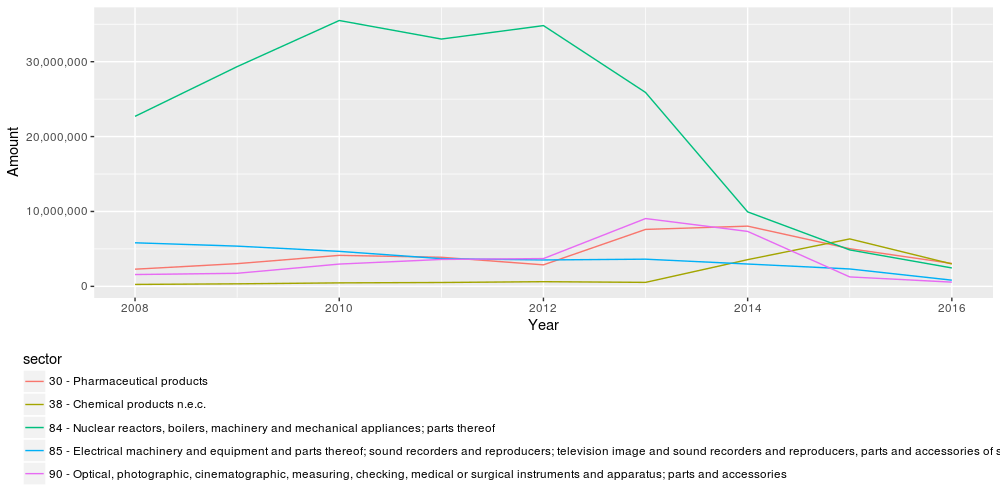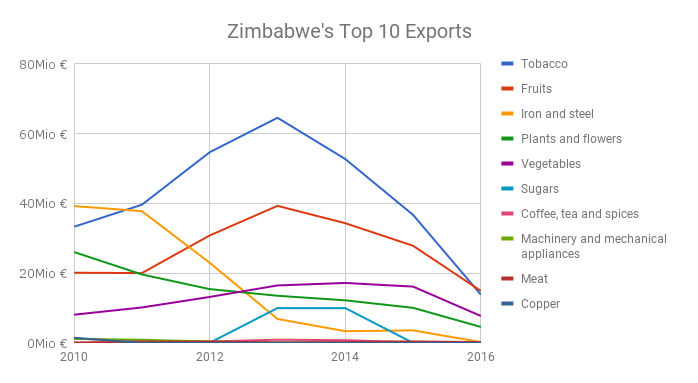How Mugabe's business policies have impacted Zimbabwian trade
The Netherlands, small as they are, are one of the biggest trading partners to Zimbabwe. Their trade history reflects the history of the country and it's turbulent political landscape.
Zimbabwe's biggest trading partners by Amount
In 2012, Robert Mugabe declared all businesses in the country had to be owned by blacks. Anyone who did not comply was to leave the country. The decision led to a rapid decline in international trade.
The policy has to be viewed within the broader context of Zimbabwe's colonial past. When President Robert Mugabe took the office of Prime Minister in 1980, it was in the midst of an African national movement to liberate the indigenius population of white minority rule and segregation. Mugabe has since proven an ambiguous icon, associated with corruption and dictatorship just as much as with black freedom in Zimbabwe.
Over the years, Mugabe has put in place multiple policies aimed at returning land to indigenous people at the expense of white land owners who claimed it during the colonial rule of the country, the most prominent being the 2000 land redistribution, which seized white-owned land throughout the country and returned it to the black population.
Zimbabwian trade has been affected heavily by the 2012 shift in the business landscape. Imports have crashed around the board: Machines and machine parts – like computers, printers and various parts used in heavy machinery – had been the biggest import to Zimbabwe to the Netherlands for years. Now, they've settled at around 2.5 million Euros, around a tenth of what they were ten years ago.

In the past years, import trade has shown little to no sign of stabilizing, even though the first shock of the policy is sure to have subsided by now.
Looking at Zimbabwe’s exports between 2010 and 2016 reveals a mixed picture. In the first three years, the Netherlands bought increasingly tobacco and fruits and the outlook looked promising for especially these two commodities.
However, as Zimbabwe's domestic situation grew more uncertain with increased economic and social problems combined with internal political power struggles, all exports to the Netherlands took a blow. Whereas numbers for the mining businesses exporting iron and steel had decreased consistently from 2010 onwards, from 2013 to 2016 also export numbers of all other commodities plummet.
The deteriorating export numbers with the Netherlands further added liquidity constraints to the country’s economy that was already sufficiently destabilized from the effects of Mugabe’s land reform in the 2000s.

With Mugabe resigning in late 2017 after more 30 years as the country's leader, the question remains: Where will Zimbabwian trade go in the future? Will the change in leadership trigger a change in trade policy? The political system, for one, shows no sign of changing any time soon.
Share This Story:
- Log in to post comments

